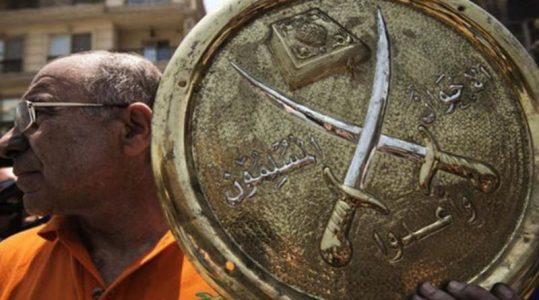
Egyptian campaign to Congress targeting Muslim Brotherhood
Egyptian politicians and oppositionists in the United States underestimated the effectiveness of attempts by the regime of the coup leader, Abdel Fattah El-Sisi, to influence the position of the US Congress against the Muslim Brotherhood, and to make it include them in the lists of terrorism or consider it as a terrorist group like Daesh.
In statements to Arab21, they predicted that the regime’s efforts would fail, especially in light of the formation of the new Democratic-dominated Congress formation and El-Sisi’s involvement himself in human rights violations, notably the Murder of Italian student Giulio Regeni.
The so-called popular campaign to include the Muslim Brotherhood on terrorism lists is preparing a visit to the US Congress next March to hand over documents proving “the group’s involvement in terrorist operations and the joining of a large number of its members to Daesh.”
The Founding Director of the Liberal Democracy Institute of Egypt, Dalia Ziada, revealed that the visit would include other countries such as the UK and Germany to provide all the evidence they have at hand, without disclosing the sources of these evidence that the regime claimed to have against the group’s activity.
These efforts come as part of an Egyptian effort backed by regional states that started in 2015 to persuade former US President Barack Obama to include the Muslim Brotherhood in terrorist groups but failed to achieve any of their endeavours.
In December 2013, the Egyptian government declared the Muslim Brotherhood as “terrorist group” and asserted that “all its activities, including demonstration, are prohibited.” Following that decision, and for five years, El-Sisi’s regime has dissolved the Muslim Brotherhood’s charitable societies, seized, and confiscated their properties.
The former Egyptian parliamentarian and the head of Al-Hiwar Centre (The Centre for Arab Culture and Dialogue) in Washington, Abdel Mawjoud Dardiri, ridiculed the efforts of the popular campaign to be launched, saying: “Dalia and her sisters are looking for a space and a few dollars after its price rise in Egypt, which is beset by soldiers and mercenaries.”
He predicted in his interview with Arabi21 that the popular campaign would reach negative consequences under the current circumstances. He pointed out that “El-Sisi’s falsification has been exposed since 2013, and the Congress is now talking about standing against the dictatorial regimes in the region after the crimes of the “saw” (bin Salman) in Yemen and his assassination and dismembering of the martyr Jamal Khashoggi, and as well as the role of Egypt in the torture and murder of Regeni.”
Dardiri described El-Sisi’s regime as “a fortress of sand falling apart in the face of economic, political and social failure, referring to the article by Michel Dunne, a Middle East scholar at the Carnegie Endowment for International Peace, who described El-Sisi’s regime as “a fortress of sand, holed up in his green zone.”
He pointed out that “Most of the Congress knows that el-Sisi’s regime, like the regime of “the saw” (bin Salman,) is based on repression and corruption and unless Israel and its Zionist supporters were in Washington, support for el-Sisi’s regime will stop.”
Dardiri believed that “The visit to the People’s Campaign has dimensions of personal utility, and trying to beautify the ugly regime which killed more than one thousand Egyptians in one day, and imprisoned more than 60 thousand Egyptians, and according to US reports, is one of the main sources of terrorism and corruption in the region. He added that what the Italian parliament did with El-Sisi parliament is not surprising.”
The leader of the Egyptian-Americans Freedom and Justice Organization, Hani Al-Qadi, revealed that the efforts of the popular campaign led by the former president of Ibn Khaldoun Centre Dalia Ziadeh are not new, and that “it has been leading a popular campaign for a long time to classify the Brotherhood as a terrorist group in the United States, financed by the Egyptian regime and its allies from the Gulf states.”
He added to Arab 21 that “they are not tired of the continuing attempts to pressure the US Congress and the American administration to classify the Muslim Brotherhood as a terrorist group in several ways, the latest of which what the new popular campaign marketed when it tried to link the Brotherhood to the terrorist Daesh with documents fabricated by the Egyptian intelligence services.”
He said that “the Egyptian regime has forgotten or pretended to forget that the US administration has intelligence agencies that report on the situation in Egypt and do not recognize the reports of the Egyptian intelligence and their agents from the Gulf countries who are the main sponsors of these frenzied campaigns against the Muslim Brotherhood, which all have failed.”
Dardiri referred to the efforts of “figures such as Majdi Khalil and Diaspora Copts, then the Republican Senator Ted Cruz’s law in November 2015, and finally, the National Security Committee led by the Republican Senator Ron De Santis recommendation to ban the Brotherhood in July. Nonetheless, all these attempts have failed.”
The judge confirmed that “after the last American elections, where the Democrats dominated the US Congress, it is difficult for Dalia Ziadeh and its funded popular delegation to find supporters in the Congress. Her attempts and those of the Egyptian regime and its supporters will fail as before, especially as the Brotherhood is known for its peaceful approach.”
Source: Middle East Monitor





